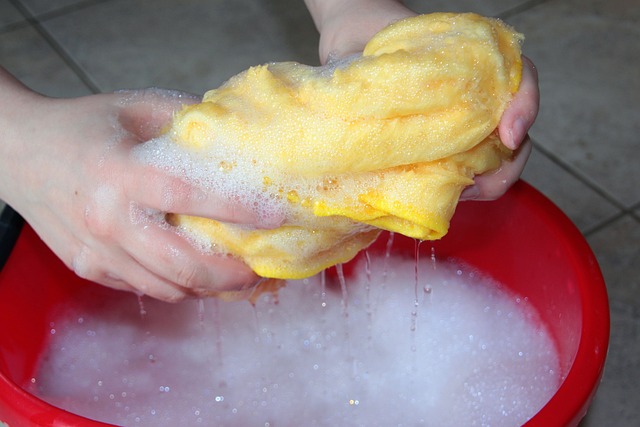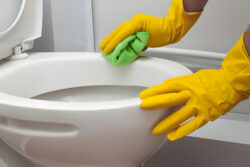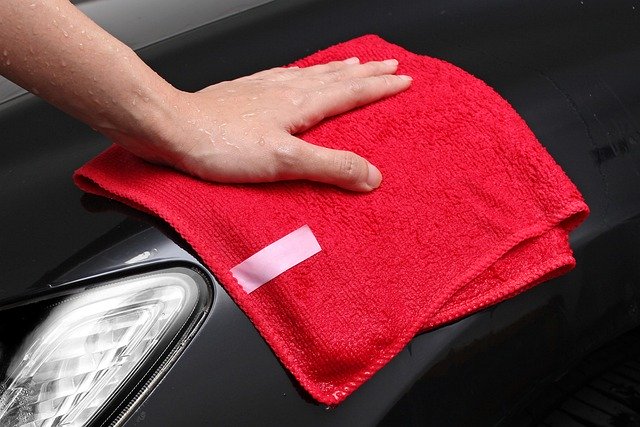In a world increasingly focused on sustainability and eco-conscious living, every little effort counts. And one area where we often overlook our environmental impact is in our home cleaning routine. From disposable wipes to chemical-laden cleaners packaged in plastic bottles, it’s easy for our quest for a spotless home to generate unnecessary waste. But what if we told you that you can maintain a sparkling clean living space while also reducing waste? Yes, it’s possible, and we’re here to show you how! In this blog post, we’ll unveil five amazing tips for reducing waste in your home cleaning routine, helping you embrace a greener, cleaner lifestyle.
Cleaning your home doesn’t have to come at the expense of the planet. The journey towards a more sustainable cleaning routine starts with small, deliberate choices that collectively make a significant impact. In the following paragraphs, we’ll explore innovative ways to minimize waste, reduce your carbon footprint, and create a healthier environment within your home. Whether you’re an eco-warrior looking to level up your green cleaning game or simply curious about how to make your cleaning routine more eco-friendly, you’re in for a treat.
So, if you’re ready to embark on a cleaning adventure that’s as good for the Earth as it is for your home, keep reading. These five tips will not only make your living space shine but also make you feel like a true steward of the planet. Let’s dive into a world of cleaner, greener possibilities!
Table of Contents
Choose Sustainable Cleaning Products
Using eco-friendly and sustainable cleaning products is one of the excellent ways to reduce waste in your home cleaning routine. Consider the following tips:
- Look for environmentally friendly certifications: When purchasing cleaning products, check for labels such as “EcoLogo” or “Green Seal.” These certifications ensure that the product meets specific environmental standards and is safer for both your health and the planet.
- Opt for concentrated formulas: Concentrated cleaning products often come in smaller packaging, reducing waste. Plus, you can dilute these products with water, making them last longer and minimizing the need for frequent purchases.
- Make your own cleaning solutions: Many effective cleaning solutions can be made using simple household ingredients like vinegar, baking soda, and lemon juice. Not only are these ingredients eco-friendly, but they are also inexpensive and safe to use around children and pets.
Use Reusable Cleaning Tools

Disposable cleaning tools contribute to unnecessary waste and can quickly accumulate in our landfills. By switching to reusable alternatives, you can make a significant difference. Here’s how:
- Invest in quality, durable cleaning tools: Instead of buying single-use items, choose high-quality cleaning tools that are built to last. Look for reusable microfiber cloths, washable mop pads, and refillable spray bottles. These options not only reduce waste but also save you money in the long run.
- Use washable sponges and brushes: Traditional sponges and brushes are typically made of non-biodegradable materials and need frequent replacement. Switch to washable alternatives made from natural materials such as bamboo, coconut fibres, or plant-based cellulose. After use, simply wash them and reuse them.
- Avoid disposable wipes: Disposable cleaning wipes are convenient but contribute to significant waste. Instead, opt for washable cleaning cloths or cut-up old t-shirts to use as rags. You can wash and reuse them, significantly reducing waste.
Also read 11 Pros and Cons of Using Natural Cleaning Solutions in Your Bathroom
Practice Proper Product Usage
To minimize waste in your cleaning routine, it’s essential to use cleaning products efficiently and effectively. Consider these suggestions:
- Follow product instructions: Using the correct amount of cleaning product specified on the label prevents waste and ensures optimal cleaning results. Using more than necessary doesn’t make the cleaning process more effective, but it does increase waste.
- Avoid excessive water usage: When cleaning, be mindful of your water consumption. Turn off the tap while scrubbing surfaces or waiting for a product to work. This simple habit helps conserve water and reduces your environmental impact.
- Clean in small sections: Focus on one area at a time to prevent overusing cleaning products. By cleaning in smaller sections, you can use less product and avoid unnecessary waste.
- Use a dishwasher efficiently: If you have a dishwasher, make sure to load it fully before running a cycle. This optimizes water and energy usage while reducing the number of cleaning products required.
Read also 5 Benefits of Using Natural Cleaning Products in Your Home
Recycle and Repurpose
Reducing waste in your home cleaning routine goes beyond using sustainable products and tools. It also involves finding creative ways to recycle and repurpose items. Consider these ideas:
- Recycle packaging materials: When purchasing cleaning products, choose options with minimal packaging or packaging made from recyclable materials. Remember to recycle the packaging properly once you’re done.
- Repurpose containers: Instead of throwing away empty cleaning product containers, repurpose them for storage. They can be used to hold homemade cleaning solutions, small items, or even plant cuttings.
- Compost natural materials: If you use natural cleaning ingredients like citrus peels or coffee grounds, consider composting them instead of throwing them in the trash. Composting reduces waste and creates nutrient-rich soil for your plants.
Donate Unwanted Items
During your cleaning routine, you may come across items you no longer need or use. Instead of throwing them away, consider donating them. Here’s why:
- Donating reduces waste: By giving away items that are still in good condition, you prevent them from ending up in landfills. This reduces waste and allows someone else to benefit from them.
- Support charitable organizations: Donating to thrift stores or charitable organizations helps support their missions and provides affordable options for those in need.
- Give items a second life: Items that you no longer find useful may be valuable to others. Your old cleaning equipment, clothes, or furniture could become someone else’s treasure.
Conclusion
By incorporating these tips into your home cleaning routine, you can make a positive impact on the environment. Remember, every small change counts, and collectively, our efforts can lead to significant reductions in waste. Choose sustainable cleaning products, use reusable tools, and practice efficient product usage. Additionally, look for opportunities to recycle, repurpose, and donate items to minimize waste further. Together, we can create a cleaner and more sustainable future, one cleaning routine at a time.













